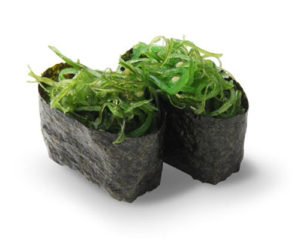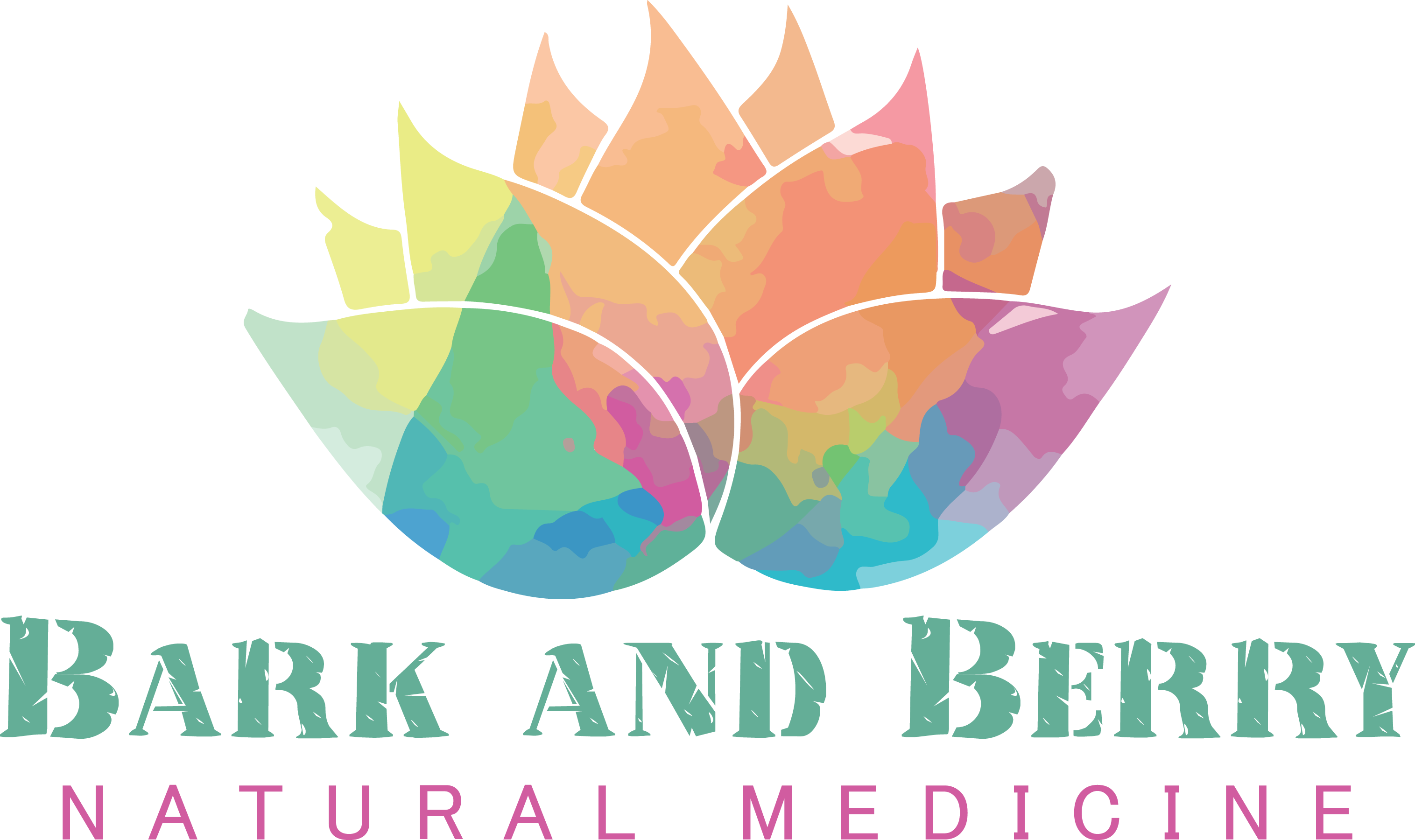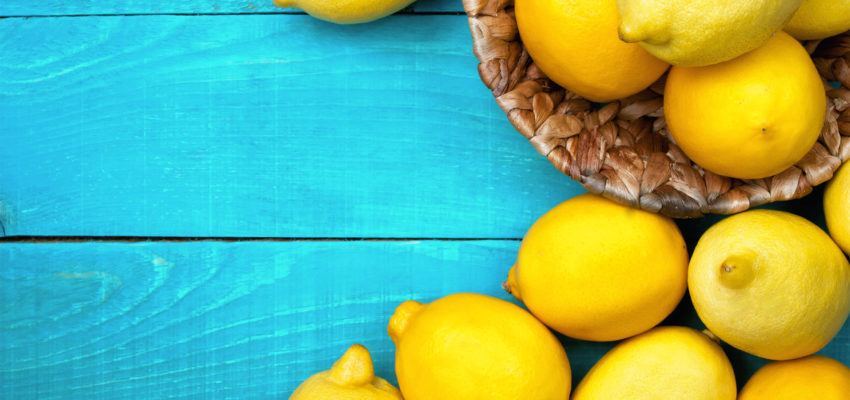
SEAWEEDS…ONE OF THE BEST SOURCES OF MINERALS
Seaweeds (also called algae) have been used since ancient times in Asia, Europe and America1 and
are a rich source of minerals, chlorophyll, fibre, protein, omega 3 fats and vitamins. They are an important source of calcium, magnesium and iodine.
Seaweed for digestive health
Seaweeds have been found to improve gut health by protecting against inflammation2 and working as a prebiotic2. The fibre contained in seaweed helps to regenerate mucous membranes, and has shown promise for relieving gastritis, and may suppress harmful bacteria including H.pylori2.
Nori
Commonly found in sushi, nori is a good source of natural iodine (which is important for the thyroid and breast health) and is 20% protein. Nori is very nutritious and is high in minerals including calcium (10 times more than milk), magnesium, potassium, selenium and zinc. Nori also contains chlorophyll (good for your gut) and is considered anti-coagulant4 and antioxidant.
Wakame
Wakame contains 7-16% protein and is high in fibre, magnesium and vitamin E2. It also contains good amounts of omega-3 fats, folate, iron, manganese, copper, vitamin K1 & vitamin C. Wakame has shown promising results in studies for balancing blood sugar levels, reducing insulin resistance and metabolic syndrome3. Wakame has shown anti-ulcer and anti-inflammatory properties, it may protect against stomach ulcers4.
Kelp
Kelp is considered antioxidant, anti-inflammatory and is high in iodine and minerals. It is a good source of vitamin K1, calcium and magnesium. Kelp assists with the regulation and sensitivity of insulin levels, and evidence suggests it may assist in reducing blood glucose in diabetics7. Kelp is often recommended to those with an underactive thyroid and hyperactive children9 for iodine.
Spirulina
This is one of the most nutritious foods on the planet. Spirulina is high in chlorophyll (which is blood cleansing and promotes good gut bacteria), protein, iron, calcium, copper and may increase energy. The bioactive components found in spirulina have been found to be anti-allergic, antimicrobial, anti-hypertensive, immunomodulatory and antioxidant8. Spirulina is often recommended for vegetarians, pregnant women, growing children and the elderly, as it is nutritious and easily digested and absorbed. Spirulina is widely available in tablet form as a supplement or as a green powder for smoothies.
Ways to eat more seaweed
It has been suggested that eating 4g of seaweed a day adds nutrition benefits to the diet1
- Sushi and Japanese seaweed salad
- Buying seaweed snacks at the supermarket (check which oils are used).
- Adding seaweed to curries, soups, stir fry’s and broths
- Sprinkle dried seaweed flakes on food just like you would salt (use just a little, so the taste is not overpowering). I often sprinkle kelp flakes (from my local health food store) on poached eggs, and any food you could add salt to, as it an be a salt substitute.
Cautions & wise use
Too much iodine can reduce thyroid hormone function, and a single dose of iodine is not recommended over 1,100ug for adults6. The RDI (recommended daily intake) in Australia for Iodine is 150ug for adults, 220ug in pregnancy and 270ug if breast feeding6. In Australia the only seaweeds currently known that can be too high in iodine are; kombu and Sargassum (as their iodine levels are >1000mg/kg). Therefor nori in sushi and the seaweeds listed above are all good to eat! It is worth noting, when increasing your iodine intake for thyroid health better results have been documented when selenium levels are adequate or supplemented10.
The seaweed carrageenan is often added to foods as a thickener and emulsifier, it can cause inflammation, and has been linked to increase blood sugar dysregulation and glucose intolerance. It is worth avoiding this substance with the amount of negative data available.
Algae supplements may interact with immunosuppressant medications, anticoagulants and antiplatelet drugs. For those who are pregnant seek professional advice before supplementing.
Nadia Peach N.D.
References
- Cofrades, S., López-Lopez, I., Bravo, L., Ruiz-Capillas, C., Bastida, S., Larrea, M. T., & Jiménez-Colmenero, F. (2010). Nutritional and antioxidant properties of different brown and red Spanish edible seaweeds. Food Science and Technology International, 16(5), 361-370.
- Rajapakse, N., & Kim, S. K. (2011). Nutritional and digestive health benefits of seaweed. In Advances in food and nutrition research (Vol. 64, pp. 17-28). Academic Press.
- Maeda, H. (2015). Nutraceutical effects of fucoxanthin for obesity and diabetes therapy: a review. Journal of oleo science, 64(2), 125-132.
- Choi, J. I., Raghavendran, H. R. B., Sung, N. Y., Kim, J. H., Chun, B. S., Ahn, D. H., … & Lee, J. W. (2010). Effect of fucoidan on aspirin-induced stomach ulceration in rats. Chemico-biological interactions, 183(1), 249-254.
- Indumathi, P., & Mehta, A. (2016). A novel anticoagulant peptide from the Nori hydrolysate. Journal of Functional Foods, 20, 606-617.
- Australian NHMRC (2014). Iodine. Retrieved from: https://www.nrv.gov.au/nutrients/iodine
- Brown, E. M., Allsopp, P. J., Magee, P. J., Gill, C. I., Nitecki, S., Strain, C. R., & McSorley, E. M. (2014). Seaweed and human health. Nutrition reviews, 72(3), 205-216.
- Ovando, C. A., de Carvalho, J. C., Vinícius de Melo Pereira, G., Jacques, P., Soccol, V. T., & Soccol, C. R. (2016). Functional properties and health benefits of bioactive peptides derived from Spirulina: A review. Food Reviews International.
- Sullivan, K. M. (2009). Iodine deficiency as a cause of autism. Journal of the neurological sciences, 276(1), 202.
- Drutel, A., Archambeaud, F., & Caron, P. (2013). Selenium and the thyroid gland: more good news for clinicians. Clinical endocrinology, 78(2), 155-164.



